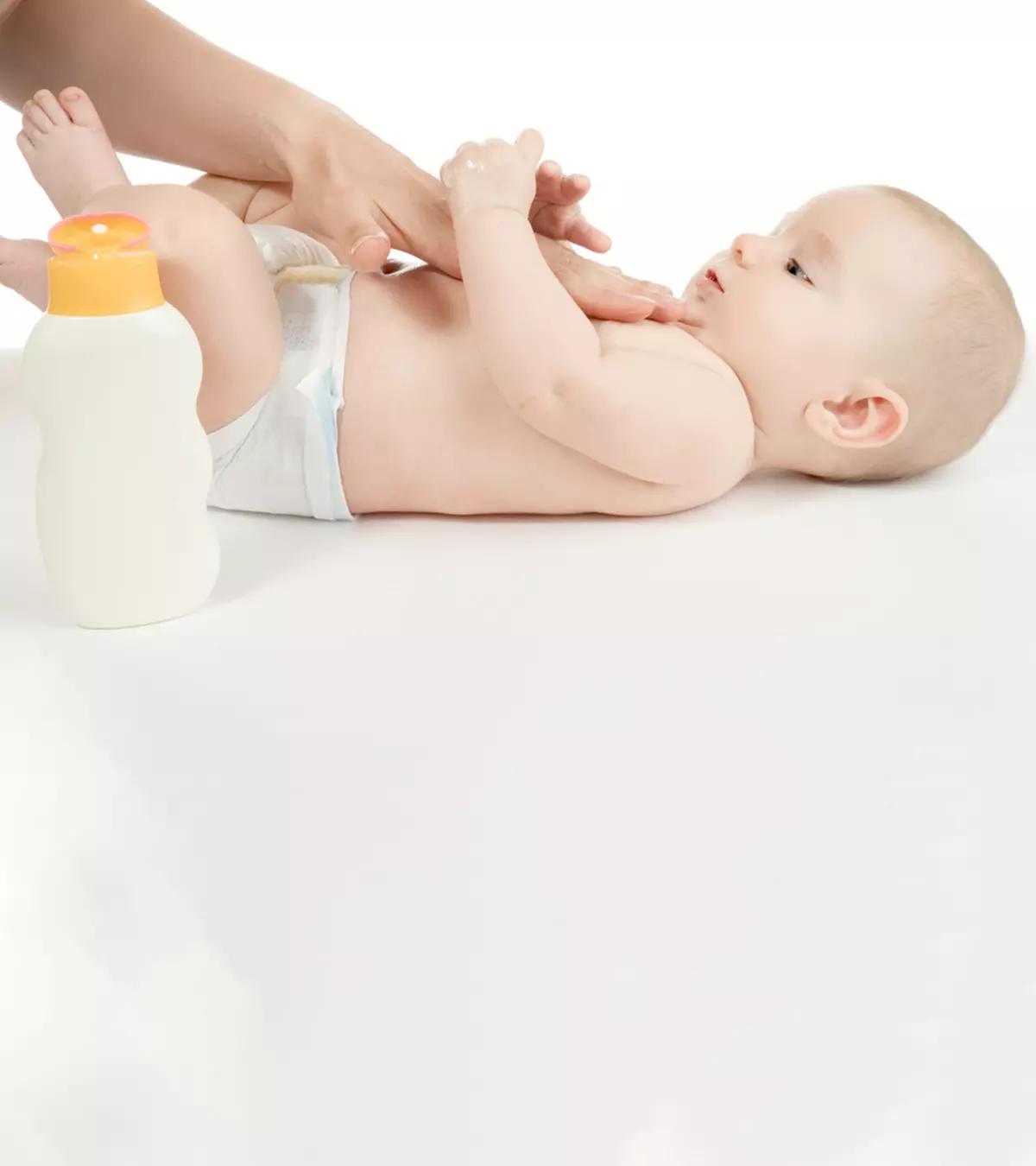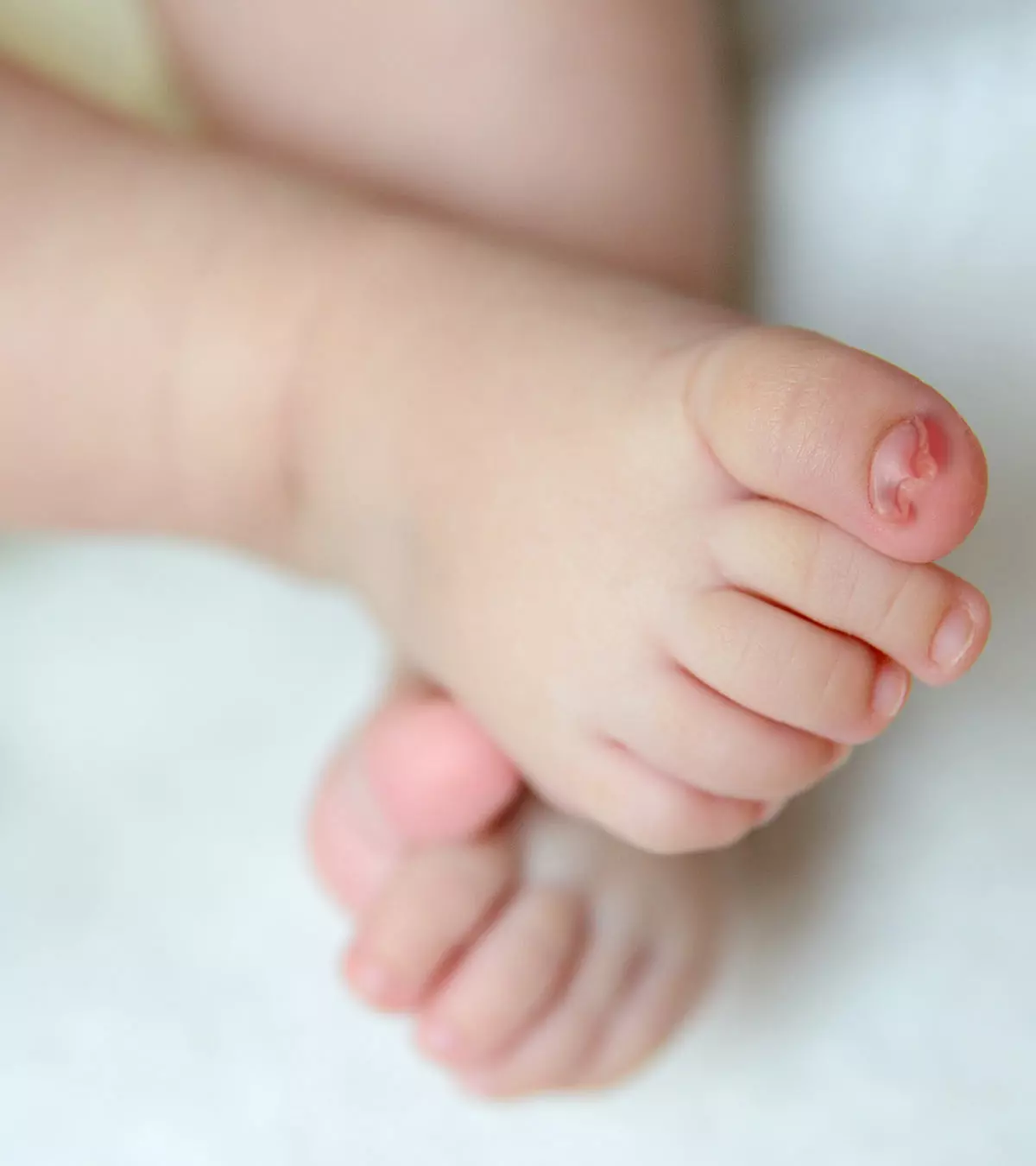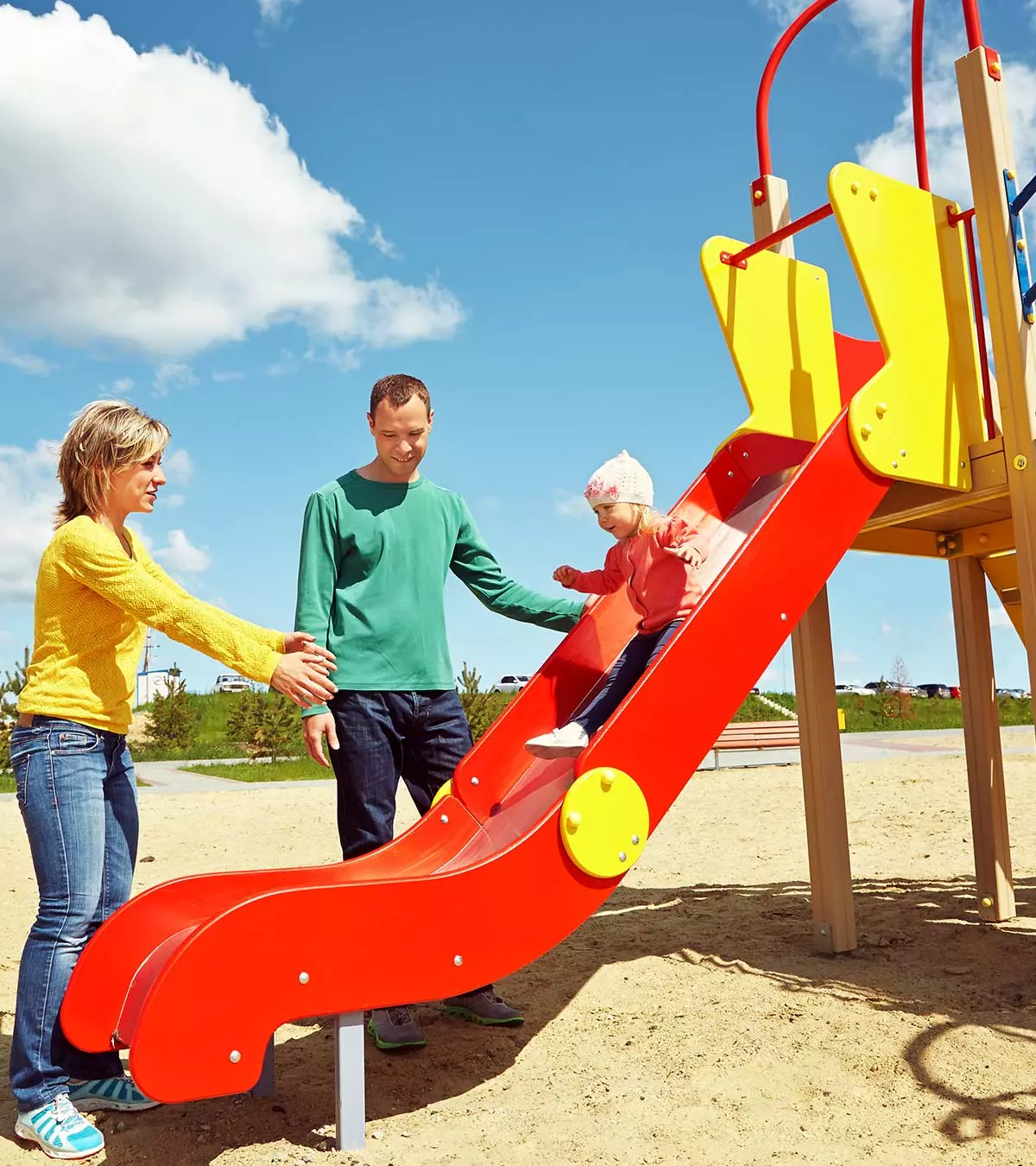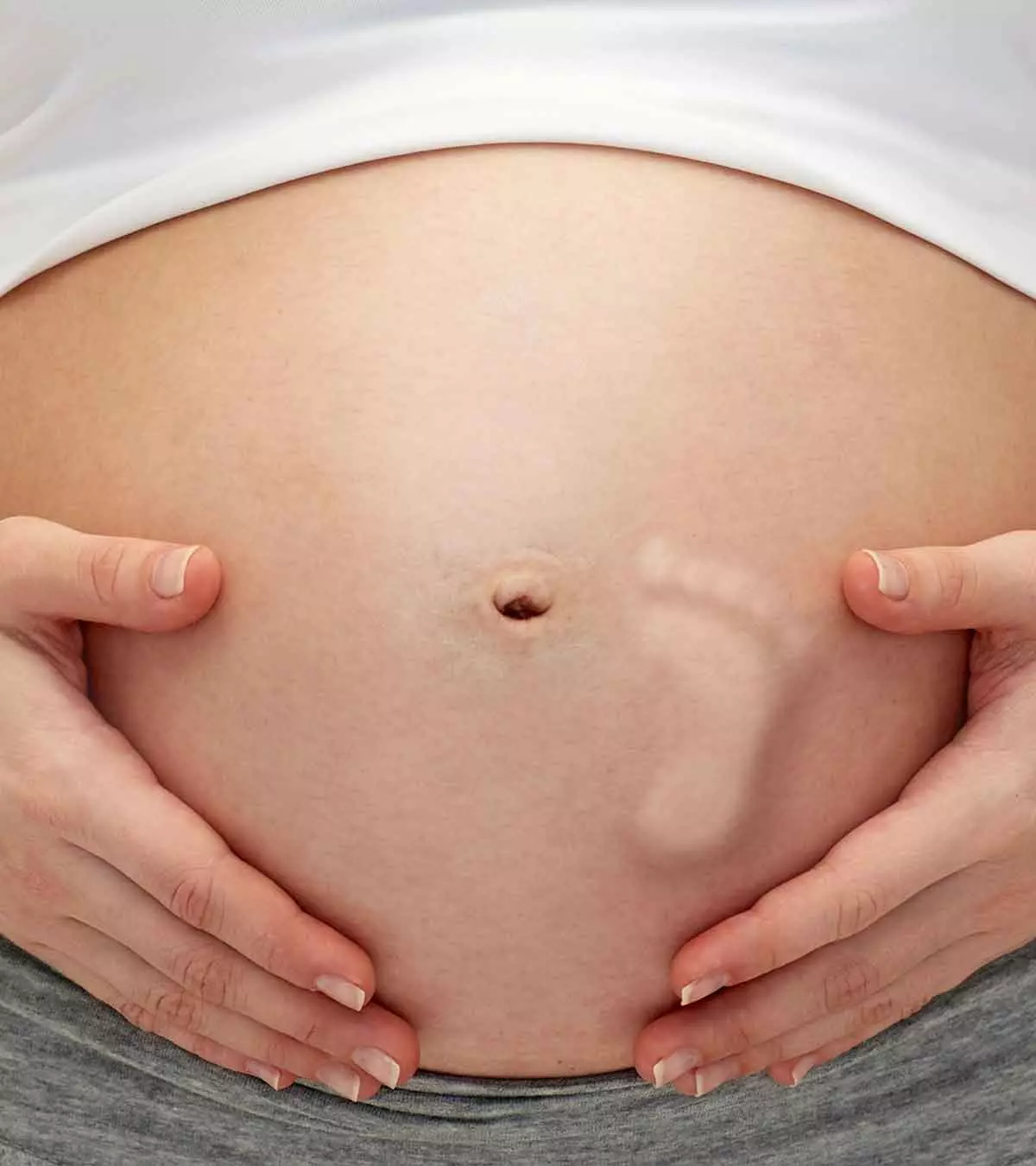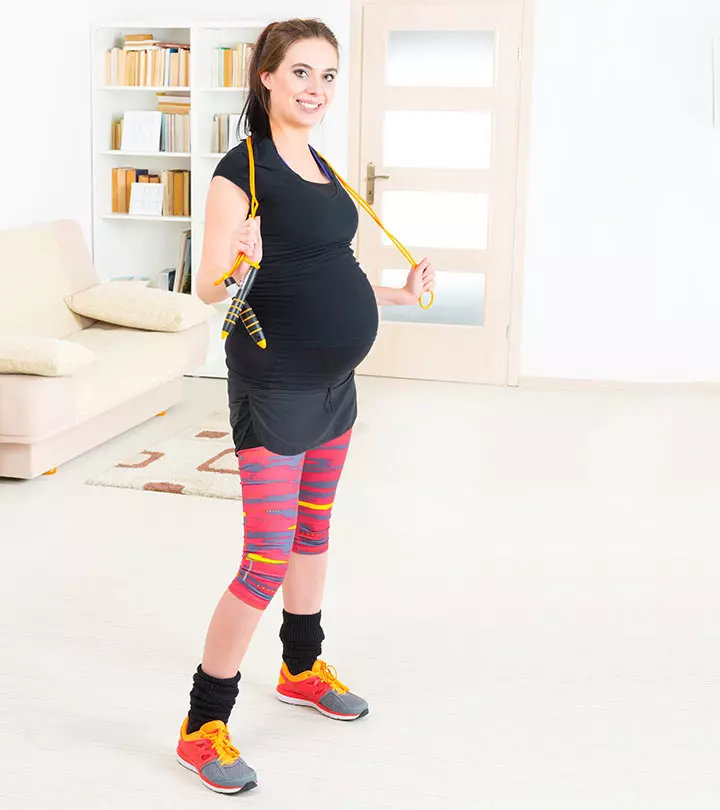
Image: ShutterStock
Many women who exercise regularly to stay fit might worry about the safety of jumping during pregnancy. While light exercises during pregnancy are beneficial for blood circulation and muscle growth, obstetrics advise women to stay away from intense exercises such as jumping ropes or sacks, which may increase the risk of pregnancy complications.

Jumping exercises may loosen the ligaments, cause injury, and lead to miscarriage. Therefore, you should exercise caution and follow safety tips to stay healthy during pregnancy.
Read about the adverse effects of prenatal jumping exercise and some useful safety tips for a risk-free pregnancy.
Key Pointers
- Jumping is not recommended during pregnancy as it may cause injuries, preterm labor, or even miscarriage.
- Hormonal and physical changes during pregnancy may loosen the ligaments and joints, which is why high-impact activities (such as jumping) could be unsafe.
- Alternative exercises, such as walking, swimming, prenatal yoga, or stationary cycling, are considered safer options for pregnant women.
- Low-impact exercises are great for regulating weight gain, promoting muscle strength, and improving sleep and energy levels during pregnancy.
- It is ideal to consult a doctor before starting any physical activity and choose the right and safe exercise routine during pregnancy.
Safe Exercises For Pregnant Women
There are some cardio, aerobic and strength training exercises that women can safely indulge in as a part of their antenatal care plan. Some of them are:
- Swimming
- Walking
- Cycling (on a stationary bike)

- Light Weight training
- Low-impact aerobic exercise
- Prenatal Yoga
- Light stretching exercises
 Quick fact
Quick factHow Are Light Exercises Beneficial For Pregnant Women?
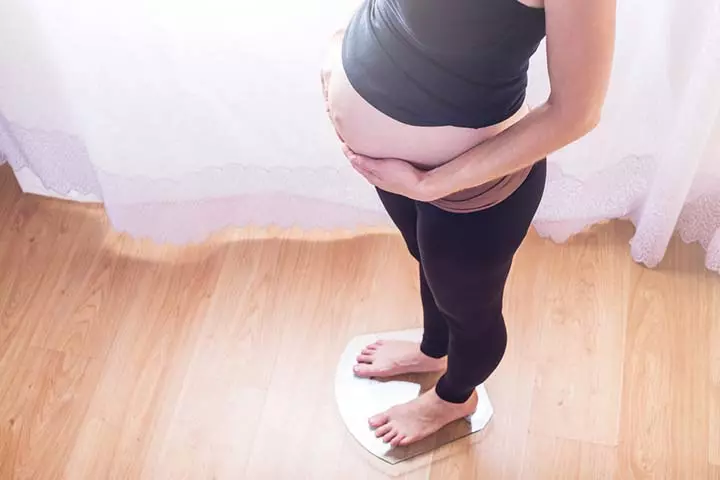
There are different types of prenatal exercises like stretching, walking, swimming or yoga that are beneficial for maternal health. You can go ahead and choose a fitness regimen during your pregnancy that suits you. Here is a list of the benefits of practicing such light exercises during pregnancy:
- Regulates weight gain
- Boosts your mood and energy level
- Improves the blood circulation
- Promotes muscle tone, strength, and endurance
- Helps reduce backaches, constipation, bloating, and swelling
- Improves the quality of sleep
 Quick fact
Quick factHarmful Effects Of Jumping During Pregnancy
Is it safe to jump rope while pregnant? Well, there are several harmful health effects of practicing jumping exercises while expecting your baby. Some of them are the following:
- Increases The Risk Of Ligament Injury: During the delicate phase of pregnancy, a woman’s body produces and releases the Relaxin hormone. The hormone loosens the ligaments in the pelvic region. As the ligaments soften, they become more prone to injuries. If a pregnant woman takes up a strenuous workout like jumping exercises, she is likely to injure or even fracture her ligaments and joints.

- Causes Preterm Labor: The uterus of a pregnant woman grows large during pregnancy and exerts enormous pressure on the cervix. Jumping can cause frictional impact between the uterus and cervix and may lead to preterm labor and delivery.
- Increases The Risk of Miscarriage: During pregnancy, the center of gravity shifts due to the growing baby bump and you are at a greater risk of losing your balance and falling or even suffering a miscarriage.
- Causes Vaginal Bleeding: Jumping ropes involves a jarring movement and requires pelvic pressure. It could sometimes cause vaginal bleeding and premature contractions in pregnant women.
These risks emphasize that women should be aware of body changes and avoid high-intensity activities like jumping or other exercises that could harm their health or the unborn child.
Tips For Exercising Safely During Pregnancy
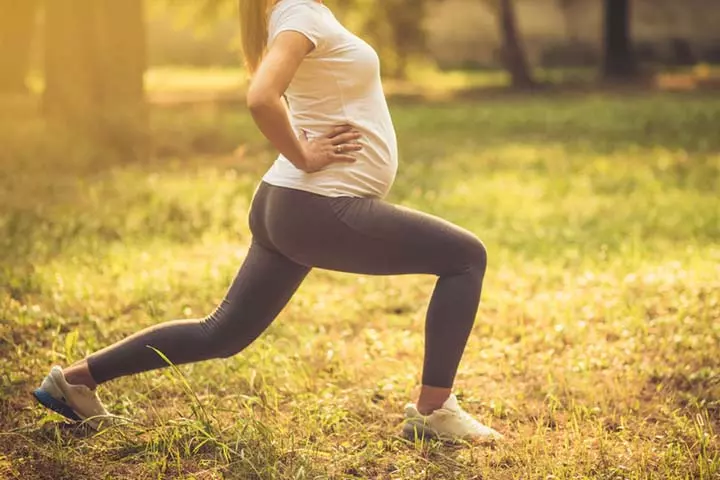
You can follow a few safety tips to exercise right and enjoy a healthy pregnancy. There are certain precautionary measures you can take to reduce the risk of accidental injury or miscarriage during pregnancy. Go ahead and check them out!
- Wear loose fitting and comfortable clothes, to perform the exercises smoothly.
- Choose the right kind of exercising shoes and maintain a proper posture to increase your flexibility and grip.
- Practice exercises on a flat surface to prevent injury or sudden fall.
- Drink a lot of water and fluids to prevent dehydration.
- Seek medical guidance from your health practitioner, before trying new exercises.
 Quick tip
Quick tipFrequently Asked Questions
1. When should I stop jumping during pregnancy?
Avoid high-impact exercises that involve jumping, especially after the second trimester or if you have a high-risk pregnancy. However, high-performance athletes can usually continue to exercise if their pregnancy is not complicated (1) (2).
2. Can jerks cause miscarriage early pregnancy?
Simple jerks are not impactful enough to cause miscarriage in early pregnancy. However, you should be cautious and try to avoid it as much as possible.
3. Can I perform jumping jacks during pregnancy?
No. Jumping jacks are considered high-impact exercises that are not generally recommended for pregnant women (2) (3).
4. Which exercises should be avoided during pregnancy?
During pregnancy, avoid exercises that put pressure on your tummy and require you to lie flat on your back for an extended period. Also, avoid contact sports, high-impact exercises, and exercises at altitudes greater than 2,500 meters above sea level (2) (4).
5. Is it safe to jump on a trampoline during pregnancy?
Trampolines are not considered safe during pregnancy as it may increase the risk of falls and injuries (7).
Exercises involving jumping during pregnancy may put you at risk of adverse pregnancy outcomes such as miscarriage and premature labor. If you are keen to follow your regular workout or gym while pregnant, you may follow a light prenatal care exercise routine after taking your doctor’s consent. Although different forms of exercise aid in following a healthy lifestyle during pregnancy, strenuous activities, including jumping are some exercises to avoid during pregnancy. Instead, you may choose safe exercises such as yoga or walking that help maintain your fitness levels while enjoying a healthy pregnancy.
Infographic: What You Should Know About Jumping In Pregnancy?
Exercise is beneficial for your health, even during pregnancy. However, exercises involving jumping or jumping-like movements are often not recommended in pregnancy to avoid the risk of injuries. Go through the infographic to know more about jumping in pregnancy.
Some thing wrong with infographic shortcode. please verify shortcode syntax
Illustration: Jumping During Pregnancy - Is It Safe?

Image: Stable Diffusion/MomJunction Design Team
References
- 3 Myths About Exercise and Pregnancy.
https://www.hopkinsmedicine.org/health/conditions-and-diseases/staying-healthy-during-pregnancy/3-myths-about-exercise-and-pregnancy - Activities to Avoid During Pregnancy.
https://americanpregnancy.org/healthy-pregnancy/is-it-safe/activities-to-avoid-during-pregnancy/ - HIIT (High Intensity Interval Training).
https://hsph.harvard.edu/department/nutrition/ - Exercise in pregnancy
https://www.nhs.uk/pregnancy/keeping-well/exercise/ - Exercise during pregnancy
https://www.marchofdimes.org/find-support/topics/pregnancy/exercise-during-pregnancy - Exercise During Pregnancy
https://www.acog.org/womens-health/faqs/exercise-during-pregnancy - Keeping active during and after pregnancy.
https://www.nhsborders.scot.nhs.uk/media/365948/Keeping-active-during-and-after-pregnancy.pdf
Community Experiences
Join the conversation and become a part of our nurturing community! Share your stories, experiences, and insights to connect with fellow parents.
Read full bio of Dr. Swati Chitnis
Read full bio of shreeja pillai
Read full bio of Rebecca Malachi
Read full bio of Aneesha Amonz







